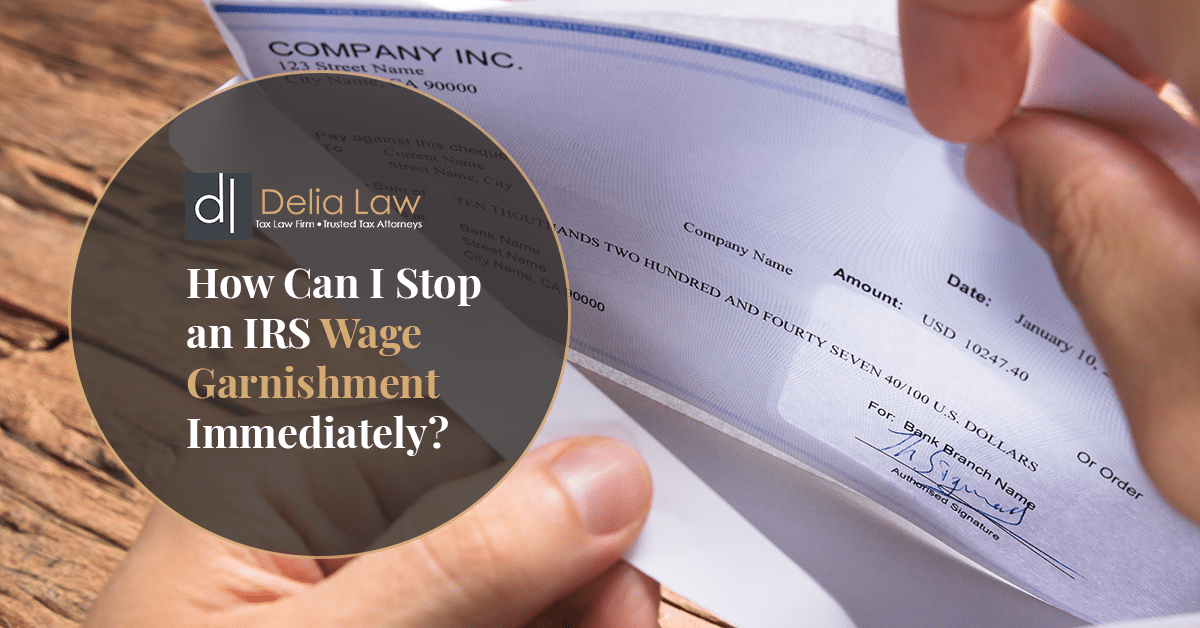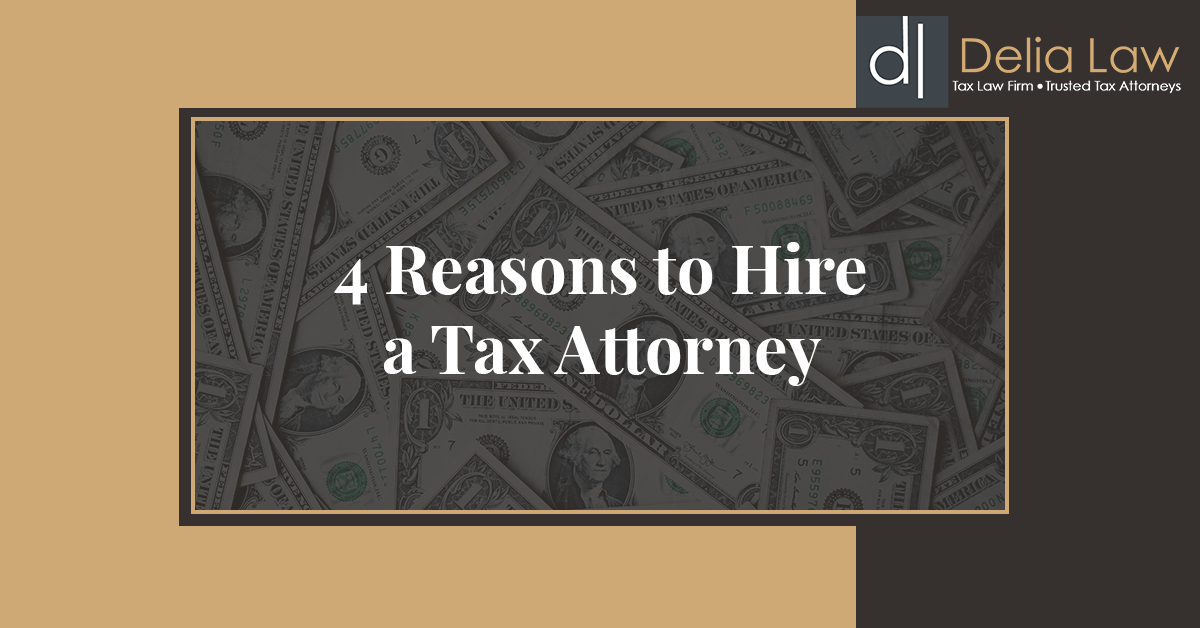IRS Wage Garnishment Help in Los Angeles
& Finding an IRS Wage Garnishment Lawyer
If you did not file your taxes properly and owe back taxes to the IRS, don’t wait to get control of the situation. You could face significant penalties with far-reaching consequences. The IRS has numerous methods they can employ to seek repayment of unpaid tax debt, some of which can be devastating to a taxpayer’s individual financial situation. Depending on the amount you owe and your record of filings and correspondence with these agencies, you could face severe collection action, including an IRS wage garnishment.
An experienced federal tax attorney working with the IRS is a tremendous asset if you have received Notice and Demand for Payment from the IRS. They can be your first line of defense against aggressive debt collection tactics.
What Is Wage Garnishment?
Wage garnishment is a debt collection vehicle the IRS may enact against a taxpayer when the agency has notified the taxpayer of an unpaid debt but has been unable to pay it in full. Wage garnishment means the agency collecting a tax debt you hold takes a percentage of your paycheck. The agency filing for wage garnishment will coordinate with the taxpayer’s employer, who will deduct the approved garnishment amount from the employee’s paycheck until the employee has repaid their debt.
Typically when a creditor needs to pursue legal action against an insolvent debtor, they must obtain approval from the court to pursue wage garnishment. However, the IRS do not have to wait for the court’s permission. Once one of these agencies has initiated wage garnishment action against a taxpayer, it is very difficult for the taxpayer to have the garnishment lifted until their debt is paid in full.
Why Is It Such a Severe Collection Action?
Many different creditors can pursue IRS wage garnishment against a debtor for an unpaid debt, but the court process required for most of them is lengthy. Generally, those in debt have some flexibility to pay the debt in question or securing an alternate resolution. Since the IRS does not need to meet this requirement, a taxpayer facing wage garnishment must act very quickly to challenge the garnishment determination or obtain release from the wage garnishment action.
Another key difference between government collection agencies and private creditors is the way these two types of parties calculate garnishments. Private creditors are beholden to state and federal laws, which restrict the amount they can deduct from a debtor’s pay. The IRS does not follow this formula for determining how much they may take and instead calculates how much a taxpayer may keep from each check. They determine their garnishment amount based on the taxpayer’s claimed W4 exemptions and paycheck frequency.
IRS wage garnishment is a major problem for many Los Angeles taxpayers in trouble with the IRS because they do not expect how much the IRS may take from each of their paychecks. It’s not uncommon for a taxpayer hit with wage garnishment for IRS tax debts to be left with too little from their pay to afford basic living expenses. This can easily create a compounded financial disaster for the taxpayer, potentially even leading to further collection efforts from private creditors they are unable to pay.
Potential Remedies for IRS Wage Garnishment
The IRS are aggressive when pursuing IRS wage garnishment. The process doesn’t take very long to start affecting your life if you are in this situation. One of the best things you can do when faced with wage garnishment for unpaid federal taxes is to contact an experienced federal IRS tax attorney who can help you determine your options and the best available remedies for the situation.
You have the right to appeal a wage garnishment action against you with the IRS. There are also some alternate remedies available that may help you satisfy your tax debts without being subject to wage garnishment. However, attempting to pursue any of these options without an experienced legal advocate on your side is incredibly difficult. Navigating IRS tax law and regulations is exceeding complex and subject to tight deadlines. An experienced federal tax attorney can help you pursue an IRS appeal or alternative to IRS wage garnishment quickly and effectively.
If you are unable to pay your IRS tax debt in full to prevent IRS wage garnishment, your IRS tax attorney can potentially help you prove that you are experiencing legitimate financial hardship. Such a hardship would explain that it is impossible for you to repay your IRS tax debt, qualifying you for IRS “Currently Not Collectible” status. It’s also possible for your tax attorney to negotiate an IRS Installment Agreement on your behalf, which allows you to repay your IRS tax debt over time instead of paying a lump sum you cannot afford.
Another option is an IRS Offer in Compromise, a legal procedure that could result in you settling your tax debt for less than you actually owe. Doing so is a complex process, so it’s vital to have an experienced IRS tax attorney to assist you in the creation of your IRS Offer in Compromise.
Why You Should Hire an IRS Tax Attorney
Do not wait when it comes to wage garnishment for unpaid taxes. The IRS pursues unpaid tax debts aggressively; the longer you wait, the more extensive the effects of the IRS wage garnishment will be. Most people who have their wages garnished for IRS unpaid taxes feel the effects for years.
Contact Delia Law today to schedule a case evaluation with an experienced federal tax attorney who can provide wage garnishment help. We can thoroughly assess your IRS tax options.












